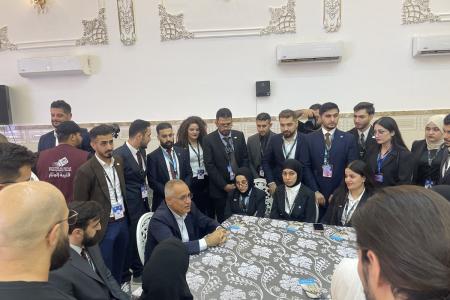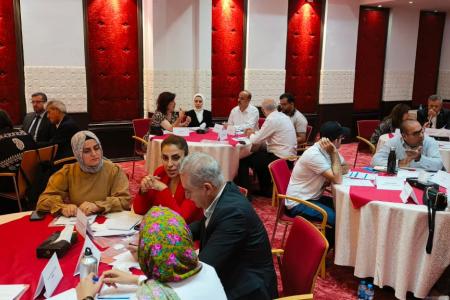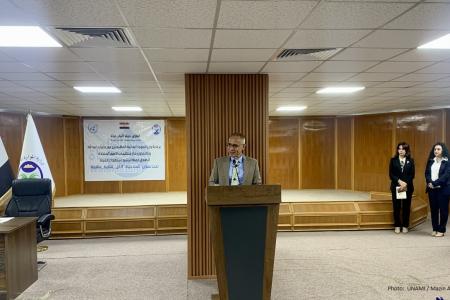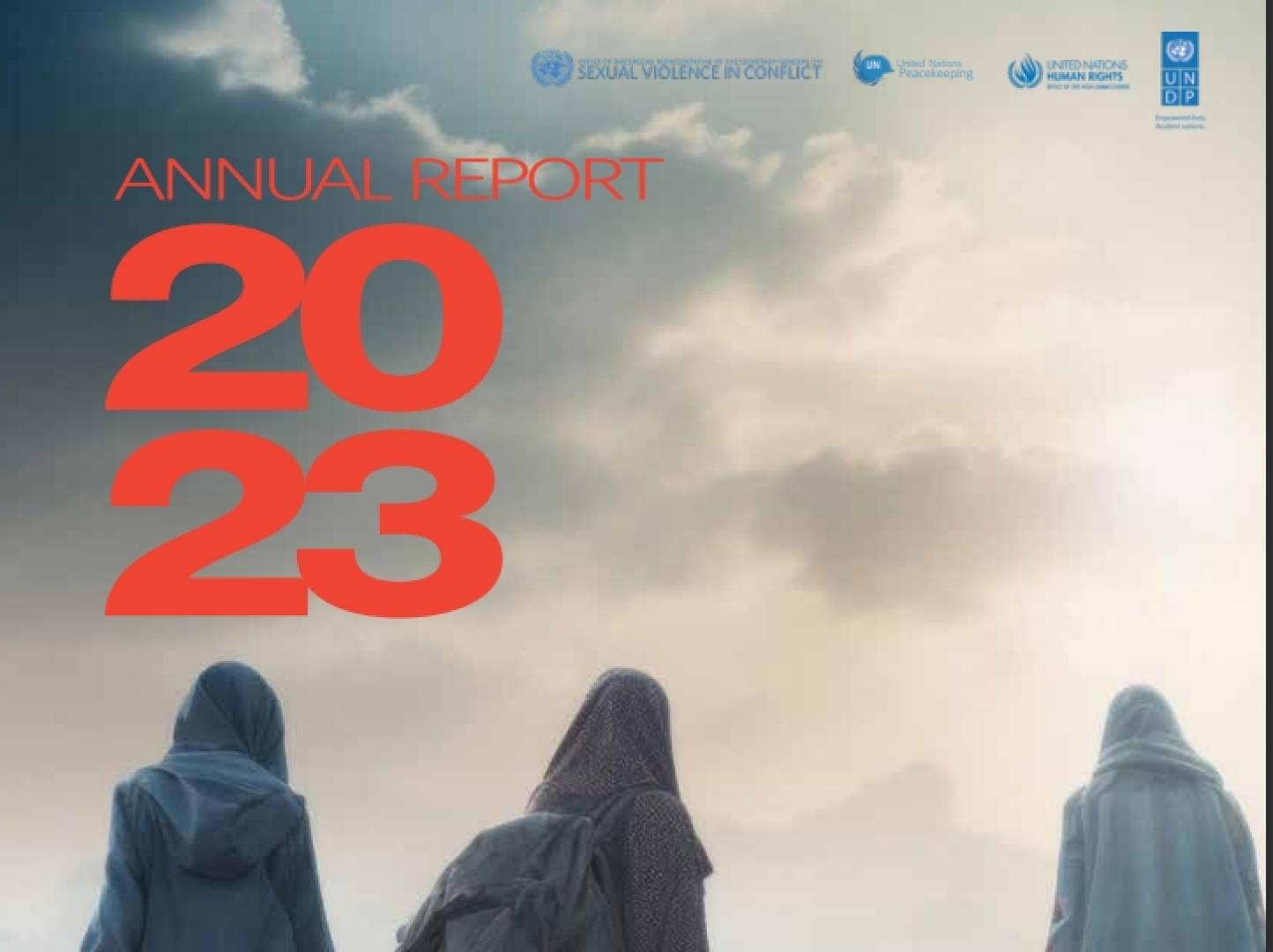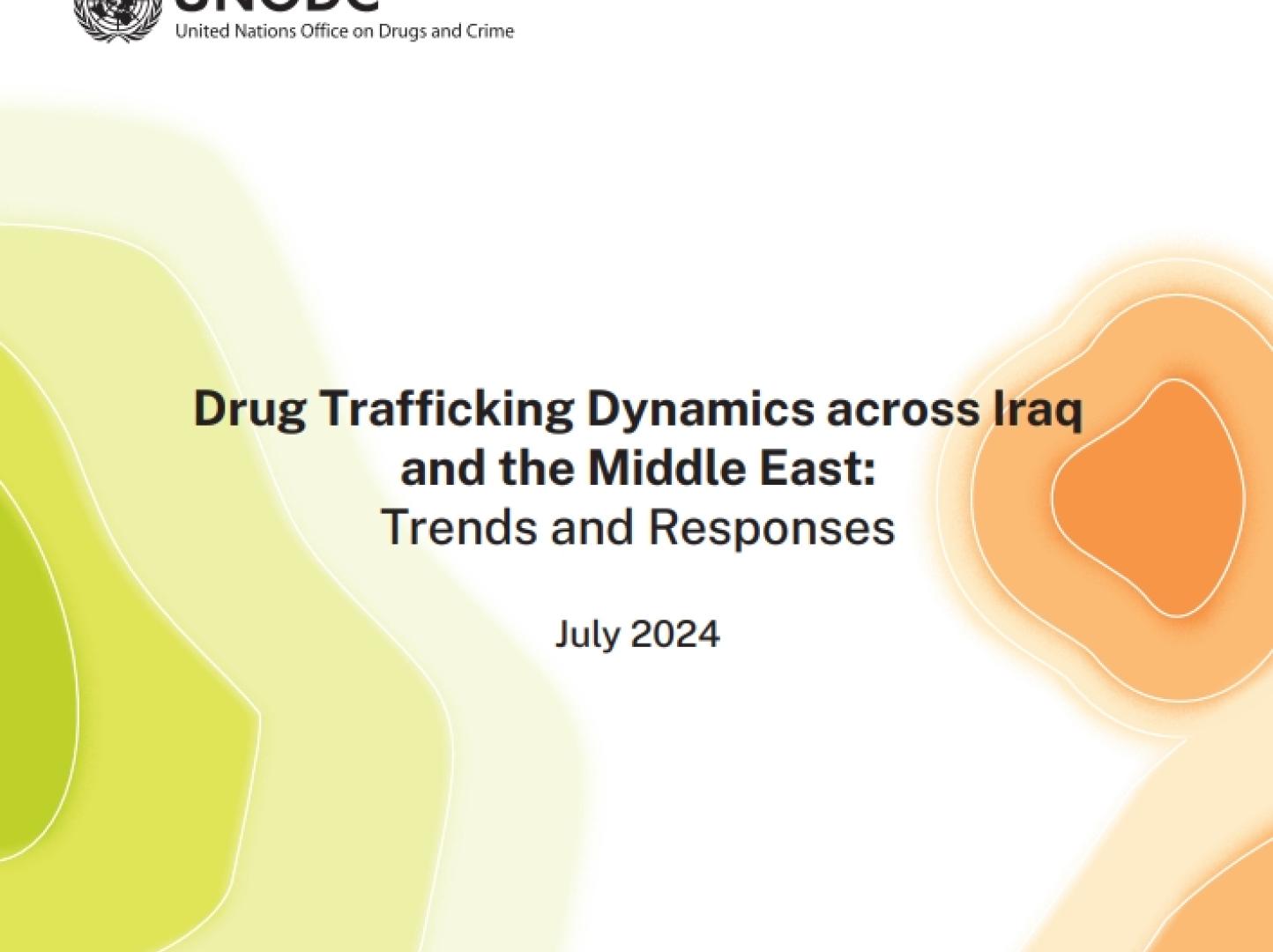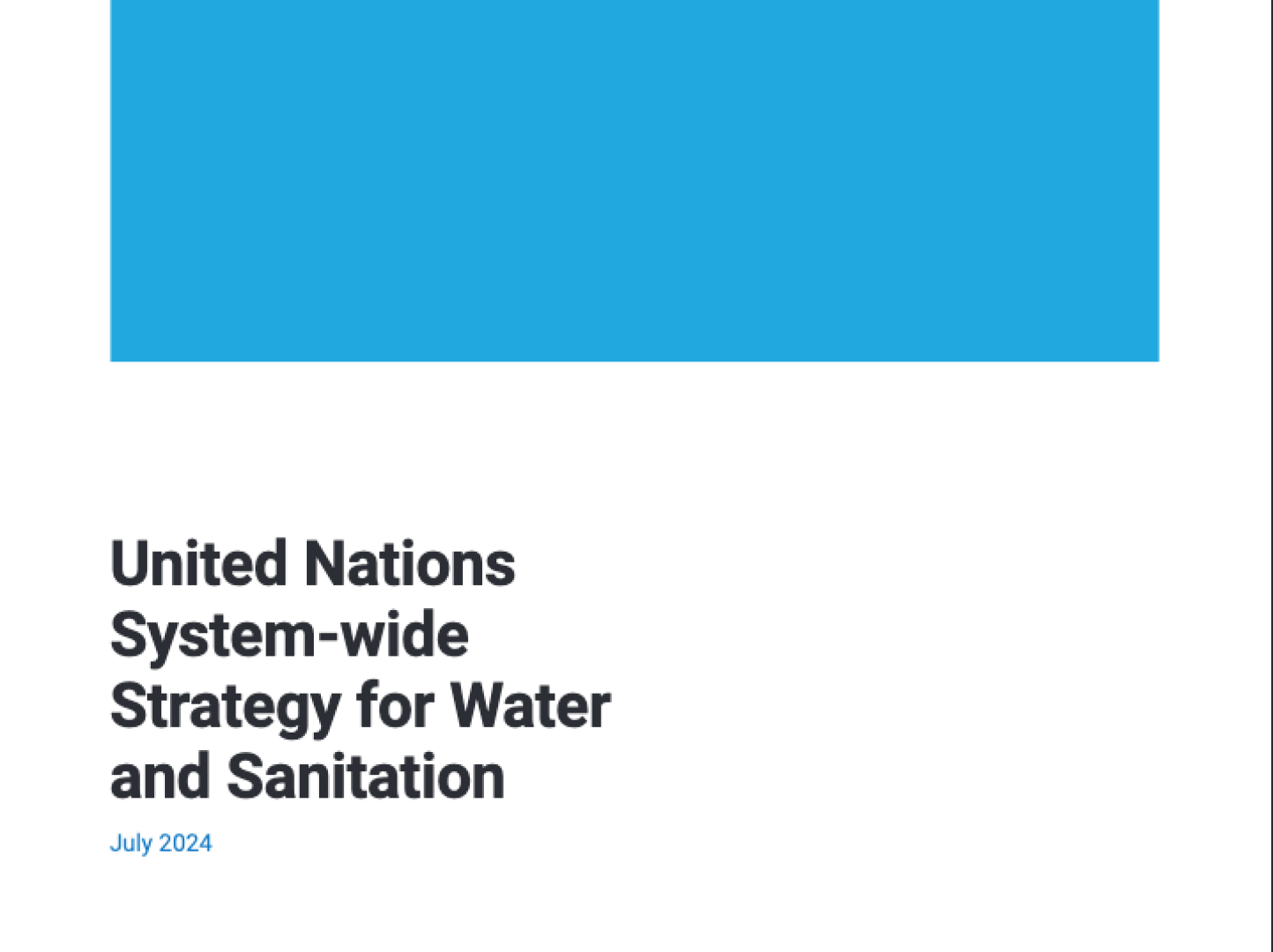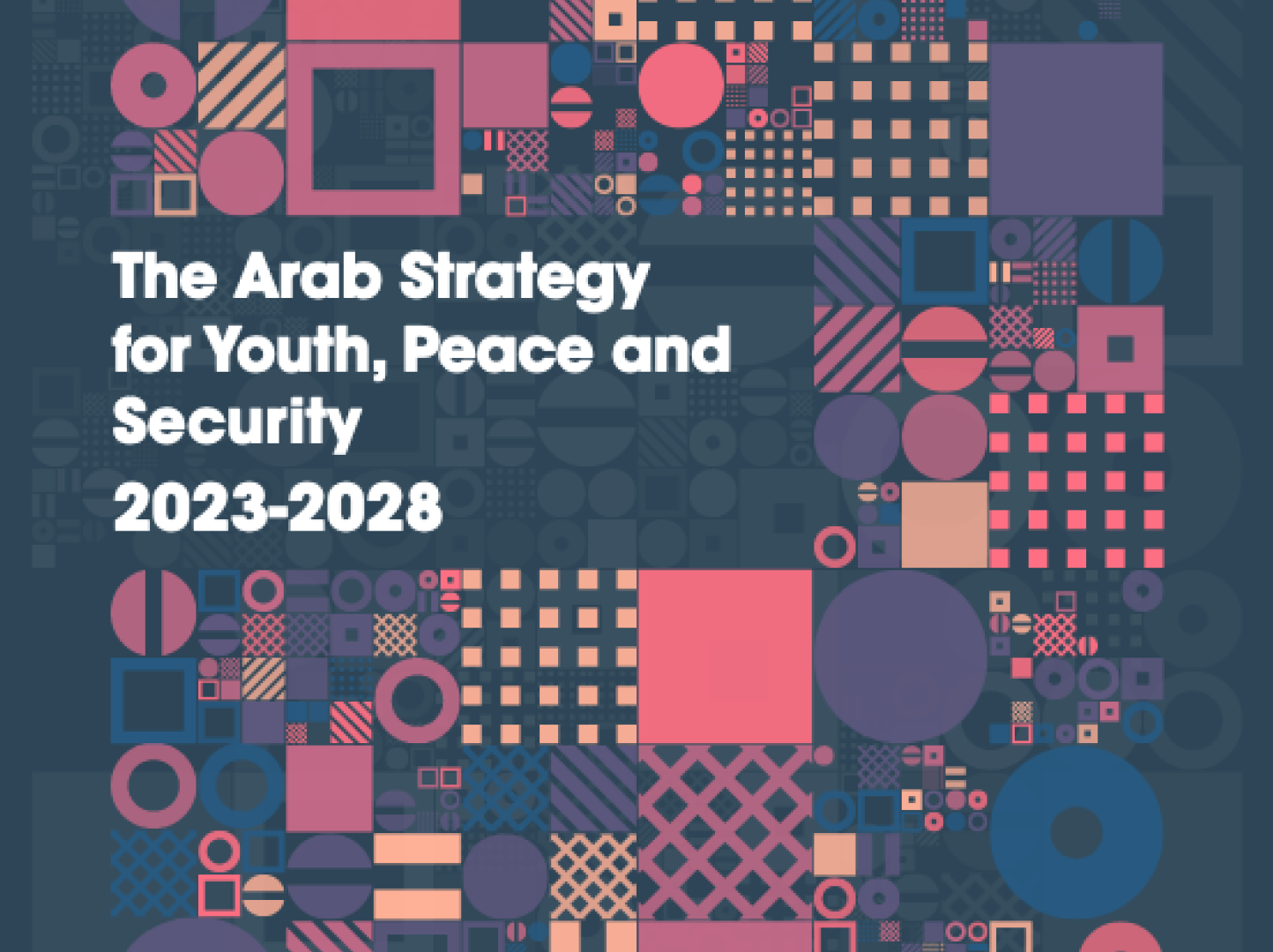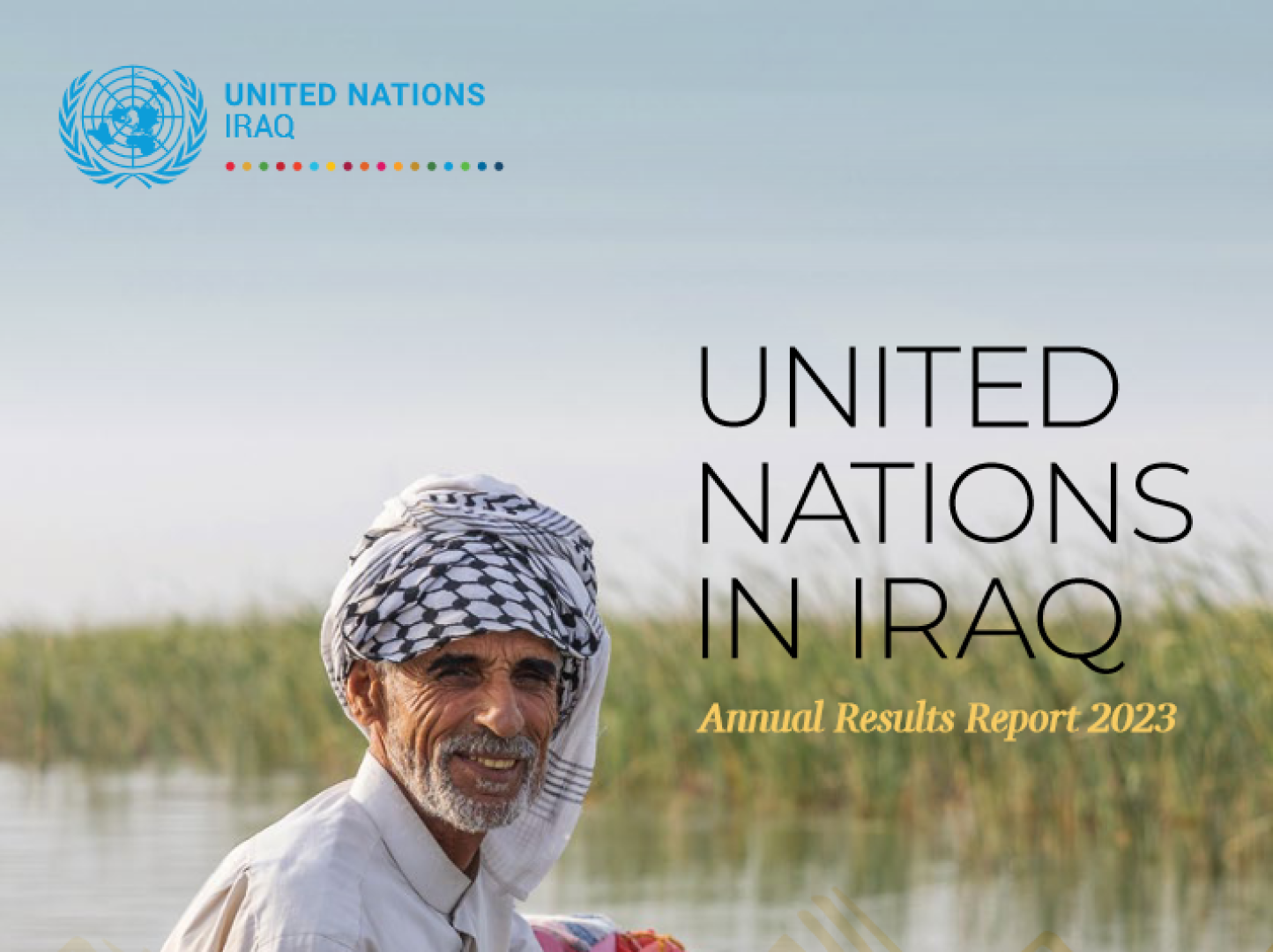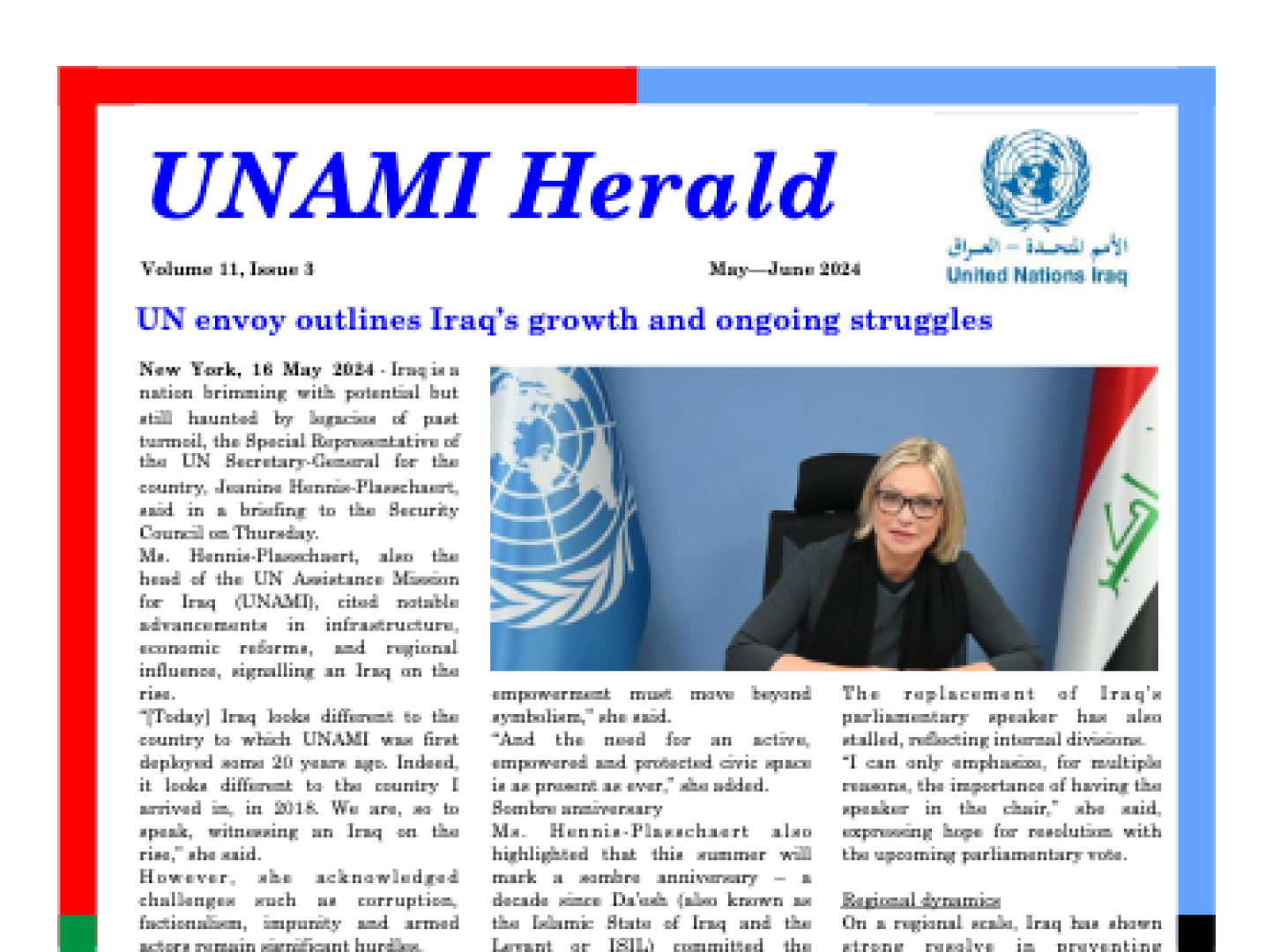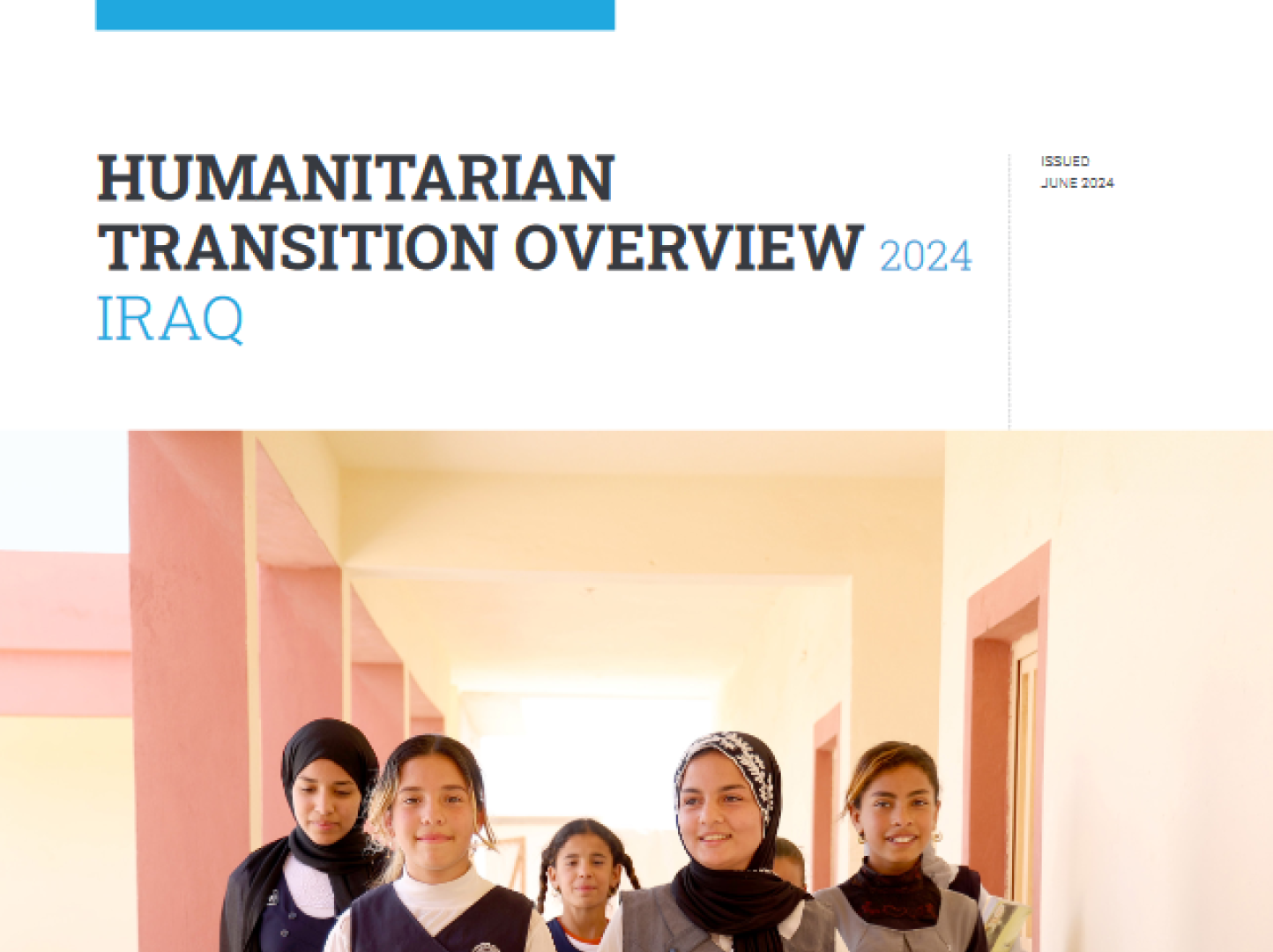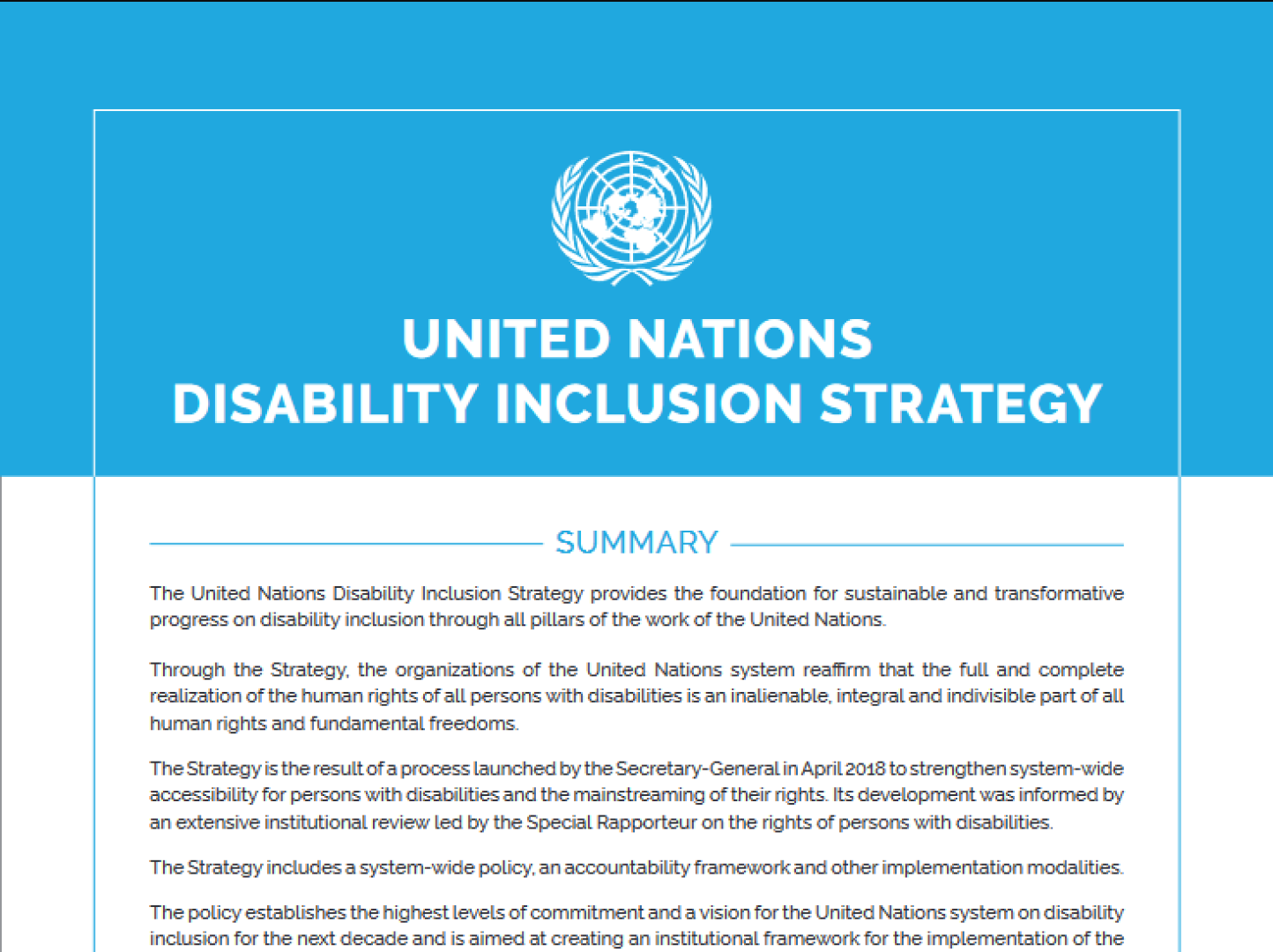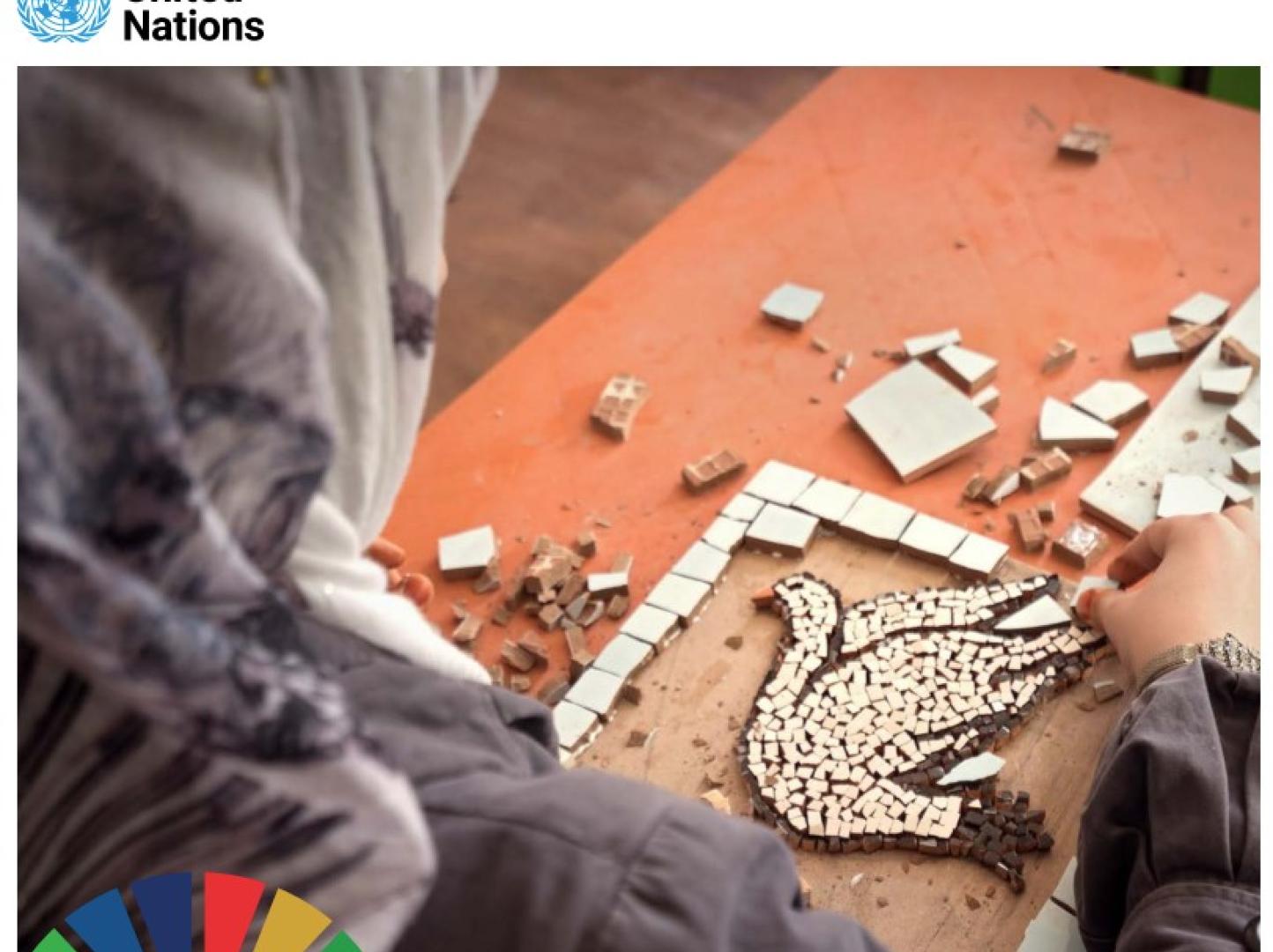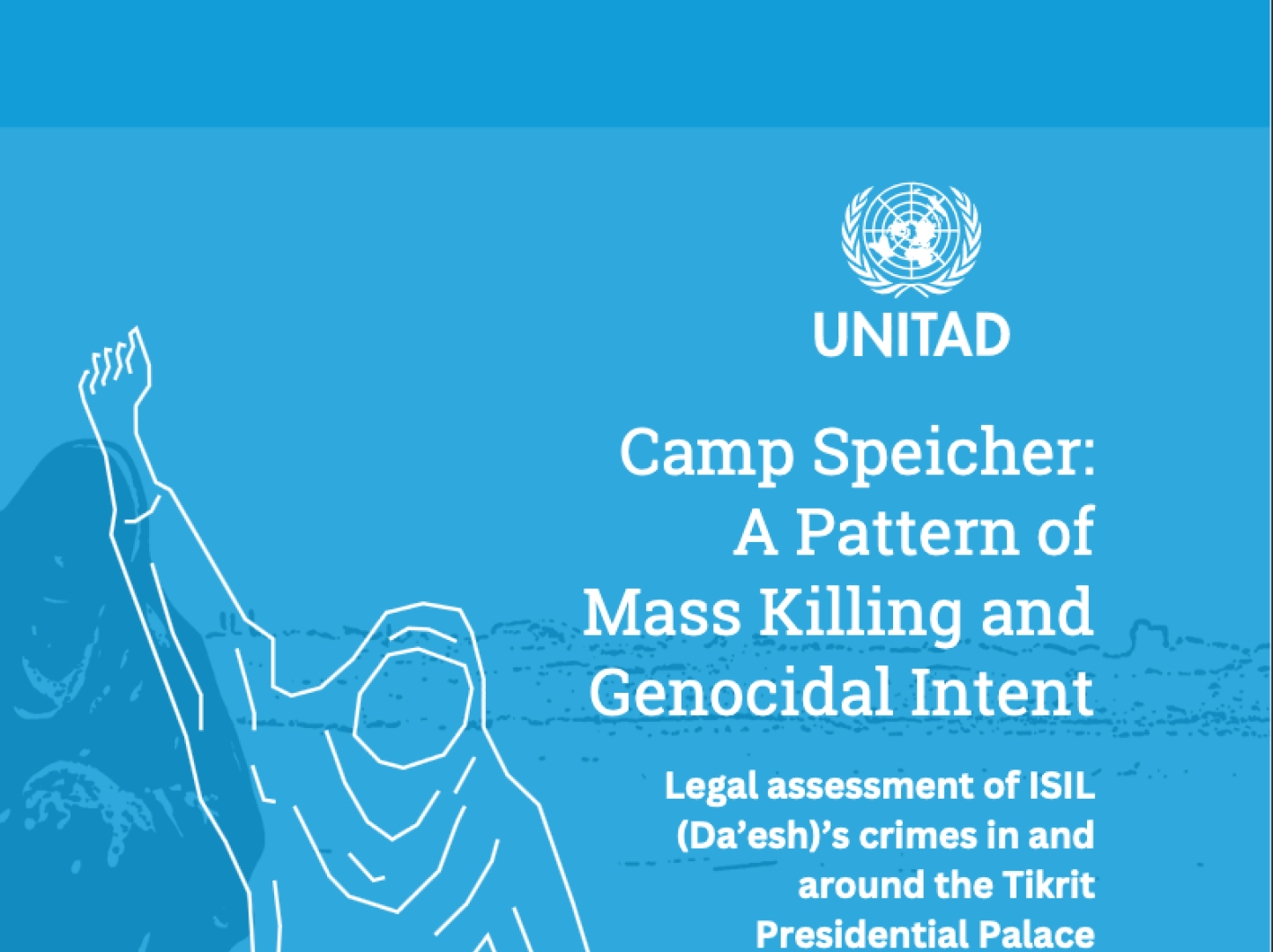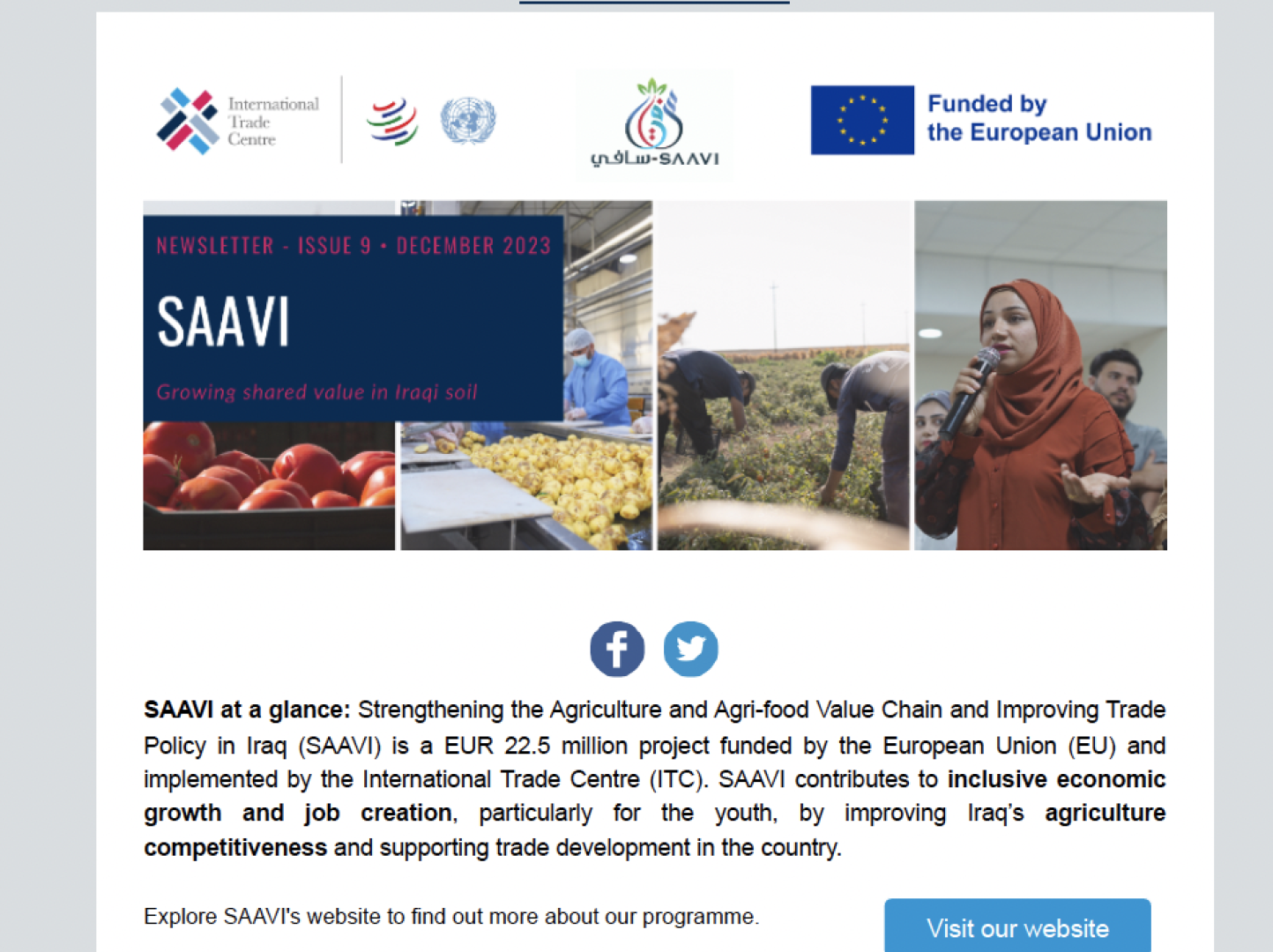Latest
The Sustainable Development Goals in Iraq
The Sustainable Development Goals are a global call to action to end poverty, protect the earth’s environment and climate, and ensure that people everywhere can enjoy peace and prosperity. These are the goals the UN is working on in Iraq:
Publication
10 July 2024
United Nations in Iraq | Annual Results Report 2023
The United Nations Country Team (UNCT) in Iraq, composed of 23 UN Agencies, Funds and Specialized Programmes, is dedicated to supporting Iraq’s journey towards achieving the Sustainable Development Goals (SDGs). Guided by the principle of Leaving No One Behind, the UNCT, under the leadership of the Deputy Special Representative of the UN Secretary-General and Resident and Humanitarian Coordinator, employs evidence-based actions and specialized expertise to enhance the lives and livelihoods of all Iraqis, with a particular focus on the most vulnerable and marginalized communities.
The operational blueprint of the UNCT is encapsulated in the United Nations Sustainable Development Cooperation Framework (UNSDCF) 2020–2024, which lays out the shared development objectives of the UN in Iraq. This framework is pivotal, outlining five strategic priorities ranging from achieving social cohesion, protection and inclusion to promoting natural resource management and climate change resilience. The overall aim is to achieve inclusive and sustainable economic growth and efficient institutional services.
Integrating the humanitarian, development and peace nexus within its collective work, the UNCT is aligned with Iraq’s Vision 2030, the Kurdistan Regional Government’s Vision for the Future and the National Development Plan, among other strategic documents. This synergy ensures that the UN’s efforts are harmonized with national priorities and strategies, marking a transition from humanitarian assistance to sustainable development and peacebuilding, firmly rooted in the commitment to leave no one behind.
The operational blueprint of the UNCT is encapsulated in the United Nations Sustainable Development Cooperation Framework (UNSDCF) 2020–2024, which lays out the shared development objectives of the UN in Iraq. This framework is pivotal, outlining five strategic priorities ranging from achieving social cohesion, protection and inclusion to promoting natural resource management and climate change resilience. The overall aim is to achieve inclusive and sustainable economic growth and efficient institutional services.
Integrating the humanitarian, development and peace nexus within its collective work, the UNCT is aligned with Iraq’s Vision 2030, the Kurdistan Regional Government’s Vision for the Future and the National Development Plan, among other strategic documents. This synergy ensures that the UN’s efforts are harmonized with national priorities and strategies, marking a transition from humanitarian assistance to sustainable development and peacebuilding, firmly rooted in the commitment to leave no one behind.
1 of 5
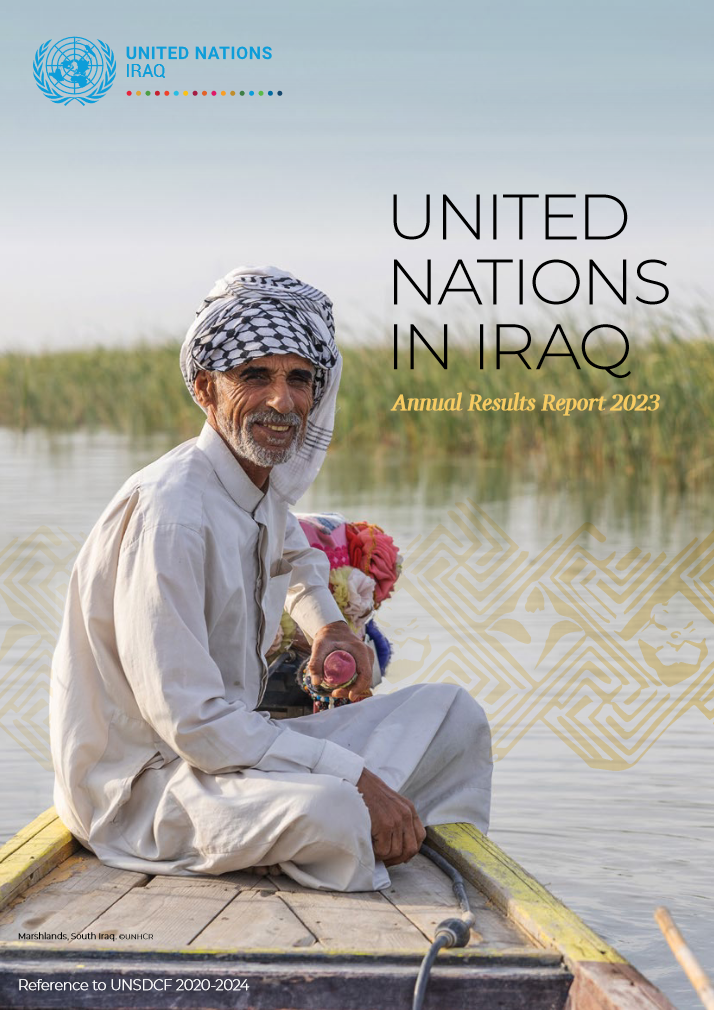
Story
28 May 2024
A farewell message from Jeanine Hennis-Plasschaert
I wish to express my gratitude and deep appreciation to all Iraqis, in particular those I have met and worked with.Over the past five years, I was repeatedly touched by the generosity and hospitality of a people who never departed from their tradition of welcoming an outsider or assisting those in need, even if at the expense of their own comfort or time. I learned much from listening to Iraqi women and men explaining their history with pride. Though many faced down serious challenges, an optimism for the days ahead often shone through. They welcomed me and other UN colleagues into their towns and homes, inviting us to join for a meal or an event and never passing up an opportunity to showcase Iraq’s rich culture and immense beauty. Throughout the country, including the Kurdistan Region, countless people of all ages spontaneously shared, time and again, their hopes and aspirations. And I will forget none of them.I also truly valued the professional meetings and discussions we had with a wide spectrum of partners. From civil society representatives, academics, tribal chiefs and religious leaders to local, provincial and national authorities, judges, security officials and politicians. Needless to say, their insights and perspectives taught us a great deal and guided our work. Some of these meetings involved individuals putting everyday differences aside to find solutions at critical junctures for Iraq. All such engagement left an indelible impression on me. And, of course, I cannot overstate our gratitude to the many branches of Iraq’s government, which, through relentless efforts, facilitated our work and protected UN personnel and operations.None of this is to say that the UN has been immune to criticism - some of which was justified, some simply based on wrong perceptions about who we are, and what we can and cannot do. But talking to those who understood the values of the Organization, and what it stands for, was most rewarding. As I have said many times, the UN does not have a magic wand. At the end of the day, the balance between conflict and peace, or poverty and prosperity, hinges on the political will of states. But if we can make a difference in the lives of people, it is worth stepping up and continuing to try. Ultimately, the UN has one main priority at its core: advancing peace and prosperity for all - no matter affiliation, faith, background or ethnicity.Again, I wish to extend my deep appreciation and thanks for the kind cooperation and support shown to UNAMI, the broader UN family in Iraq and to me personally.Long Live Iraq
1 of 5
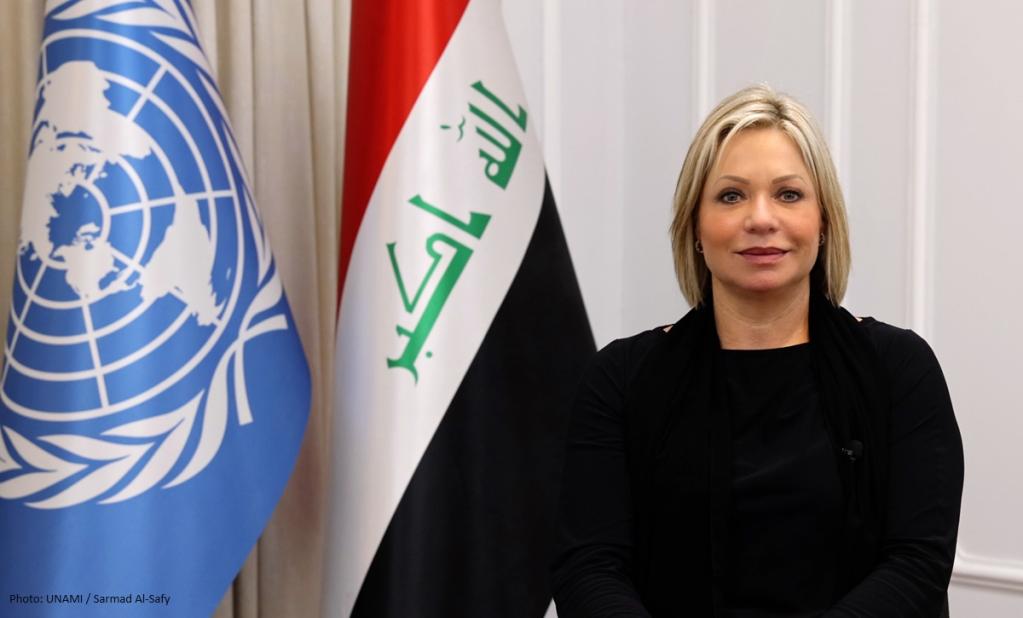
Story
12 December 2023
UN Special Representative for Iraq attends Election Day simulation
The Special Representative of the Secretary-General and Head of the United Nations Assistance Mission for Iraq (UNAMI), Ms. Jeanine Hennis-Plasschaert, attended today a simulation of Election Day processes that was held by Iraq’s Independent High Electoral Commission (IHEC).
The simulation included a comprehensive demonstration of all electronic devices to be used on Election Day, such as voter verification devices, polling station count optical scanners, results transmission devices, and cameras. This simulation was conducted successfully, showcasing the technical readiness of IHEC for the Governorate Council elections, scheduled for 18 December 2023.
In accordance with its 2023 mandate, UNAMI advises and assists the work of IHEC. UNAMI will not observe or monitor the 18 December elections, and is therefore not in a position to undertake an assessment of the manner in which the elections are conducted.
1 of 5
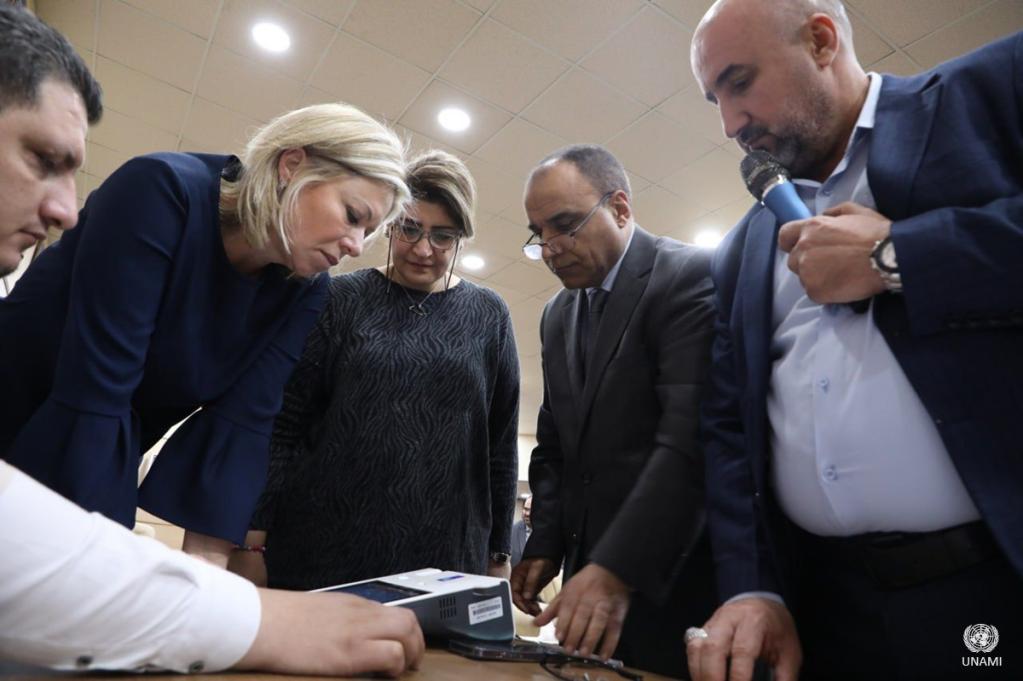
Story
10 October 2023
Briefing to the UN Security Council, SRSG Jeanine Hennis-Plasschaert |10 October 2023 (As Delivered)
Today we are roughly one year on from the formation of Iraq’s current Government, under the leadership of Prime Minister Mohammed Shia al-Sudani. Now, since its inception, several important steps and promising initiatives have emerged. To name but a few:
Long-awaited reforms in the banking and finance sectors are now underway. One example is the launch of an electronic platform for foreign currency sales, which demonstrates the Government’s commitment to both transparency and efficiency.
A new Iraq Fund for Development has been established. This, coupled with the change ushered in by the recently adopted federal budget, has the potential to spur private sector investment.
The passing of a new law on social security means that, for the first time, allIraqi workers can benefit from public entitlements, such as health insurance, as well as maternity and unemployment benefits.
And, as most of you will know, a trailblazing initiative for regional infrastructure, known as the Development Road Project, was launched some months ago.
Meanwhile, Iraq is taking further steps towards leveraging its own natural resources more effectively and responsibly, thereby aiming to reduce energy waste and shore up its energy independence.
Also, and importantly, to address the concerning issue of rapid drug proliferation, the Government has developed a National Strategy for the Prevention of Narcotics and Psychotropic Substances, among other measures.
Now, Mr. President, I already briefly mentioned the recently adopted federal budget.
It charts an ambitious course for the country until the end of 2025 and includes allocations with the potential to address critical needs, such as infrastructure development and reconstruction.
Notably, this budget represents the highest proportionate allocation to the delivery of social services yet – which (hopefully) will expand access to healthcare, education and a number of other essential public services.
To cut a long story short: with last year’s gains in political stability and an ambitious federal budget in hand, Iraq is well positioned to seize the many opportunities in front of it.
That said, and as we all know, the country’s complex and (at times) fast-evolving environment also means that this is not an easy feat, let alone a given.
Corruption is still pervasive. And combatting it, as the Prime Minister recently said, is something the Government “has been working on, is still working on and will continue to work on”. He rightly added: “Without fighting corruption, we will not be able to implement our economic vision and development programs”.
And, true, the Government has made admirable commitments. From efforts to, for instance, increase transparency around custom revenue collection to pursuing the extradition of individuals implicated in the theft of federal resources. And a new campaign, called “Where did you get this?”, has seen the Federal Integrity Commission audit the financial records of electoral candidates.
At the same time, it is clear that the intricate web of graft and vested interests, built up in Iraq over decades, will not be dismantled overnight. Especially when those who stand to lose can draw from myriad financial, political and security resources – creating the community of collusion I have referred to in previous briefings.
Also, and as spelled out numerous times, Iraq’s economic structure is in a precarious place, heavily reliant on oil and a public sector so big that it is simply unsustainable.
And although steps taken so far surely signal positive momentum, further structural reforms are going to be critical. Otherwise, a thriving private sector with high levels of employment will remain elusive.
Now, all of this must be understood alongside Iraq’s rapidly growing population – with predictions that it could double over the next three to four decades.
Why am I saying this? Because with more Iraqis coming of age without corresponding job opportunities or advances in quality of life, it is not difficult to see where this trend may go: the embers of discontent could flare up easily – again and again.
Climate change and water scarcity are, of course, other obvious threat multipliers. This past summer, again, temperatures in Iraq exceeded 50 degrees Celsius. And last June, IOM recorded almost 14,000 families as internally displaced because of drought conditions across 10 of Iraq’s governorates.
Needless to say: if left unaddressed, this is only the beginning of a rather nightmarish situation. Hence, it is for good reasons that the Government has made the issue of water security one of its top priorities.
Another issue that should not be underestimated: feelings of exclusion, marginalization, and stigmatisation. Now, why does this matter for stability in Iraq? Because if these sentiments are left to simmer, among other spillover effects, people will (again) become vulnerable to extremist propaganda.
I am, of course, aware of the ongoing efforts by the Government to end displacement. But further progress on enabling people to return to their areas of origin, including Jurf al-Sakhr and Sinjar, remains critical.
Equally important is much-needed momentum to enact legislation on enforced disappearances, as well as the amendment to the Amnesty Law.
A further topic that cannot be overlooked is the influence of non-state armed actors in certain areas, which not only undermines confidence in the state but also creates an environment of fear and anger.
Mr. President.
The Government continues to proactively engage with countries throughout the region on issues related to energy, water, economic cooperation and security. Important, as regional partnerships and integration are obvious catalysts for stability in Iraq - and beyond.
Now, within this context, I wish to highlight the implementation of the Iraq-Iran security agreement. Great efforts have been made by Iraq, including the Kurdistan Region, to secure its borders. And further work to sustain these achievements is ongoing.
All sides consider long-term security as essential, and we can only emphasize Iraq’s genuine commitment to the agreement.
Now, as I said on many occasions, this is the way to go about addressing security concerns: through dialogue, joint committees and the actual implementation of agreements – all, of course, in accordance with international law.
With this in mind, I wish to express hope that Iraq and Türkiye will also embark on a sustainable way forward. Türkiye’s security concerns are well understood. And, on that note, Mr. President, I wish to echo the Secretary-General’s condemnation of the recent terrorist attack in Ankara.
In saying this, constant cross-border attacks are a risky way to advance interests - and one with numerous adverse effects. We therefore welcome ongoing efforts on the activation of bilateral committees between Iraq and Türkiye aimed at addressing border security concerns.
And, of course, Mr. President, I cannot talk about stability in the region without mentioning the unprecedented and horrendous developments in Israel and the Occupied Palestinian Territory, which have already had a catastrophic human toll and could impact the entire region.
Now, still focusing on the region, Mr. President, I would also like to flag a recent decision of Iraq’s Federal Supreme Court regarding the 2012 agreement between Iraq and Kuwait regulating navigation in the Khor Abdullah waterway.
Taking into account the separation of powers, Iraq’s government has meanwhile made its commitment to the principles of international law, and its respect for bilateral agreements and UN resolutions, crystal clear.
Legitimate concerns have been expressed by Kuwait and the GCC. Given the priority attached by the Iraqi Government to dialogue as a means to finding solutions, as well as its commitment to maintaining positive relations with its neighbours, I hope and expect that cooperation and good neighbourliness will prevail.
Bearing in mind the risks of miscalculation and escalation, it is essential to resolve this matter expeditiously. Also important is the continuation of talks to demarcate the rest of the maritime border.
Mr. President, with regards to Baghdad-Erbil relations: to discuss the Kurdistan Region’s financial challenges, a high-level delegation from the Kurdistan Regional Government, headed by its Prime Minister Masrour Barzani, visited Baghdad on 14 September.
Soon after, Iraq’s Council of Ministers agreed to provide financial relief in the form of ‘loans’ for the next three months. This enables the KRG to pay, for the time being, the salaries of its public servants.
A positive development, and frankly speaking, it was overdue. That said, the agreement is temporary in nature and therefore not enough. Hence, more and urgent work lies ahead so as to avoid a new period of uncertainty for the Region’s public servants.
Now, I said this in past years and will repeat it now: civil servant salaries should be shielded from political disagreements. Like any other Iraqi civil servant, those working in the Kurdistan Region have families to look after and obligations to fulfil.
In August 2020, I highlighted in my briefing to the Council that the lack of specificity in Iraq’s 2005 Constitution continued to shape the debate between Baghdad and Erbil.
With the situation persisting today, what does this mean?
It means that 18 years have gone by without an agreement on the gradual enhancement of the federal system; 18 years without a sustainable framework for natural resource distribution or disputed territories; 18 years without laws delineating rights and obligations. Instead, we continue to witness constant ad hoc crisis management.
So, what I am essentially saying is that, 18 years on from the Constitution’s adoption, it is imperative to move to comprehensive and solid solutions.
As for the Sinjar Agreement, Mr. President, I regret to inform you that no progress has been made. Sadly, instead, we continue to witness different power competitions in which non-state armed actors have the upper hand.
Recent events in Kirkuk, resulting in a number of deaths and injuries, are also of concern. While the situation has calmed down for now, the precariousness of this context cannot be overlooked.
As you know, in past years, UNAMI has facilitated dialogue sessions among the representatives of Kirkuk’s components. And we are still convinced that an agreement can be reached. But for that to happen, it is imperative that the needs of people are prioritized over political gain.
Of course, the Provincial Council Elections on 18 December are of great importance as well. Especially because Kirkuk has not seen local elections since 2005.
Mr. President, something else. Previously you heard me say that the Kurdistan Region’s parliamentary elections are long overdue.
Initially scheduled for October 2022, they were postponed to November this year, and recently further delayed to the 25th of February next year.
To state the obvious: we expect all parties to ensure that this new election date will not again fall victim to internal political strife. With the current administration in a caretaker capacity, the Region’s democratic process must prevail. There is so much at stake.
On a different note, Mr. President. As any other Member State, Iraq has committed – through its Constitution and international human rights treaties – to protect the fundamental rights of all its citizens, without discrimination. This point bears repeating in light of recent debates on the use of universally accepted terms.
Turning to the issue of Al-Hol returnees: last month, a further 173 households returned to Iraq. In other words, Iraq continues to serve as an example for other states with nationals in Al-Hol.
Now, there is no denying it, challenges on the ground abound. The accessibility of core civil and identity documents, in particular their timely issuance, must be addressed as a matter of priority.
And, as Iraq grapples with the vast needs of returnees and host communities, the criticality of continued international support cannot be overemphasized.
Mr. President, zooming in on the issue of missing Kuwaiti and third-country nationals and missing Kuwaiti property – including the national archives.
The adoption of innovative DNA technology by the Government of Kuwait has led to the identification of one more missing person. I extend my deepest condolences to the family involved.
I further welcome the long-anticipated handover by Iraq to Kuwait of 22 genetic profiles that were discovered in March 2022 in Najaf. The regular exchange of genetic data is much needed to shed light on the fate of those still missing.
And of course, we continue to engage the Government of Iraq on the retrieval of missing Kuwaiti property, including the national archives. Swift and decisive action is now needed.
Mr. President, in closing: I can only emphasize the importance of Iraq’s upcoming Provincial Council elections. For many reasons, including the stepping up of service delivery; they represent a critical imperative for all Iraqis.
As a former politician I know how tempting it is to go all out in an election campaign, but things get ugly - and even risky - if campaigns turn into platforms whipping up rage or fear about others.
Therefore, all actors - be they at the national or regional level – are therefore called upon to play their part in maintaining stability in the run up to the December elections. And this should include efforts to counter mis- and dis-information.
With the Government now one full year into its tenure, driving forward the many good plans which Iraq has committed to remains a collective responsibility.
Mr. President, a final word, as I cannot conclude without acknowledging the devastating fire in al-Hamdaniya last month, which claimed the lives of over 100 people. We again convey our sincere condolences.
Thank you very much.
1 of 5
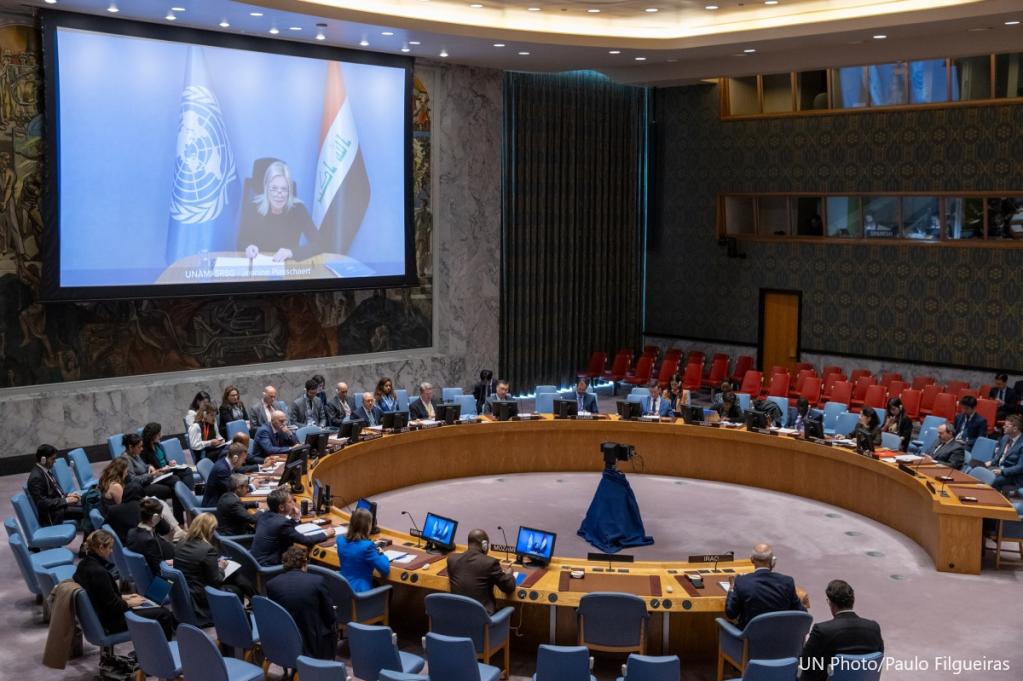
Video
20 June 2023
Remarks by SRSG Jeanine Hennis-Plasschaert | Role of Media/Social Media in Countering Hate Speech
Opening remarks by the Special Representative of the United Nations Secretary-General for Iraq and Head of the United Nations Assistance Mission for Iraq (UNAMI), Ms. Jeanine Hennis-Plasschaert, at the event on Dialogue on Hate Speech Role of Media/Social Media in Countering Hate Speech, organized by the UNAMI Human Rights Office, held in Baghdad on Tuesday, 20 June 2023. In addition, SRSG Jeanine Hennis-Plasschaert’s remarks is also available on the UNIraq website at the following links:
English: https://bit.ly/3pdVVxP
Arabic: https://bit.ly/44aoQS6
Kurdish: https://bit.ly/4463ky7
1 of 5
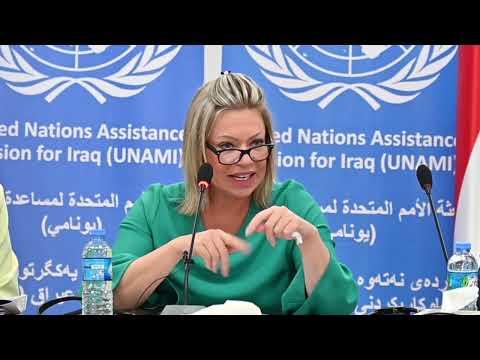
Story
25 July 2024
DSRSG/RC/HC Ghulam Isaczai Keynote Speech
Mr. Haitham Al-Shakarchi and IYMUN team, Distinguished Guests, and Young Delegates,Assalam Alaikum and warm greetings to you all. I am pleased to stand before you today at the opening ceremony of the Iraqi Youth Model United Nations (IYMUN) 2024. Let me express my appreciation to the organizers for their dedication in establishing this platform for dialogue, collaboration, and positive change. I am particularly heartened by IYMUN's commitment to inclusivity and diversity, bringing together participants from all across the country. This reflects the true spirit of Iraq – a nation rich in history, culture, and diversity.Let me take a moment to acknowledge the Governor of Nineveh, Mr. Najm al-Jubouri, and his team for their support of IYMUN and his commitment to youth empowerment.To the young delegates gathered here, you represent the hope and aspirations of Iraq. Your energy, creativity, and determination are the driving force that will shape the future of Iraq. This event provides you with a unique opportunity to engage in meaningful discussions on global challenges, and to learn from each other's diverse perspectives. Your engagement demonstrates your commitment to addressing global issues and your eagerness to contribute to a better future for all. Your voices matter, and your actions have the power to make a difference.The themes you have chosen for this year's committees, "Protecting Middle Eastern Heritage: Enhancing UNESCO's Role in Crisis Intervention" is both timely and critical. The preservation of cultural heritage is not only about safeguarding the past but also about building a resilient future. It is about recognizing the interconnectedness of human rights and environmental sustainability. The United Nations stands ready to support your endeavours. We believe in the potential of young people to be agents of change. Through education, empowerment, and meaningful engagement, we can build a more inclusive, equitable, and sustainable world.As we embark on this journey, I encourage you to embrace the spirit of collaboration, to challenge yourselves to think critically, and to explore innovative solutions to the complex issues we face. Remember, the future of Iraq is in your hands.I am confident that the discussions and outcomes of this event will not only enrich your knowledge and understanding but also inspire you to take action and become active contributors to your communities and the world.I wish you all a successful and fruitful conference.With that, I officially launch the 3rd Model United Nations in Iraq. Shukran Jazilan. Thank you
1 of 5
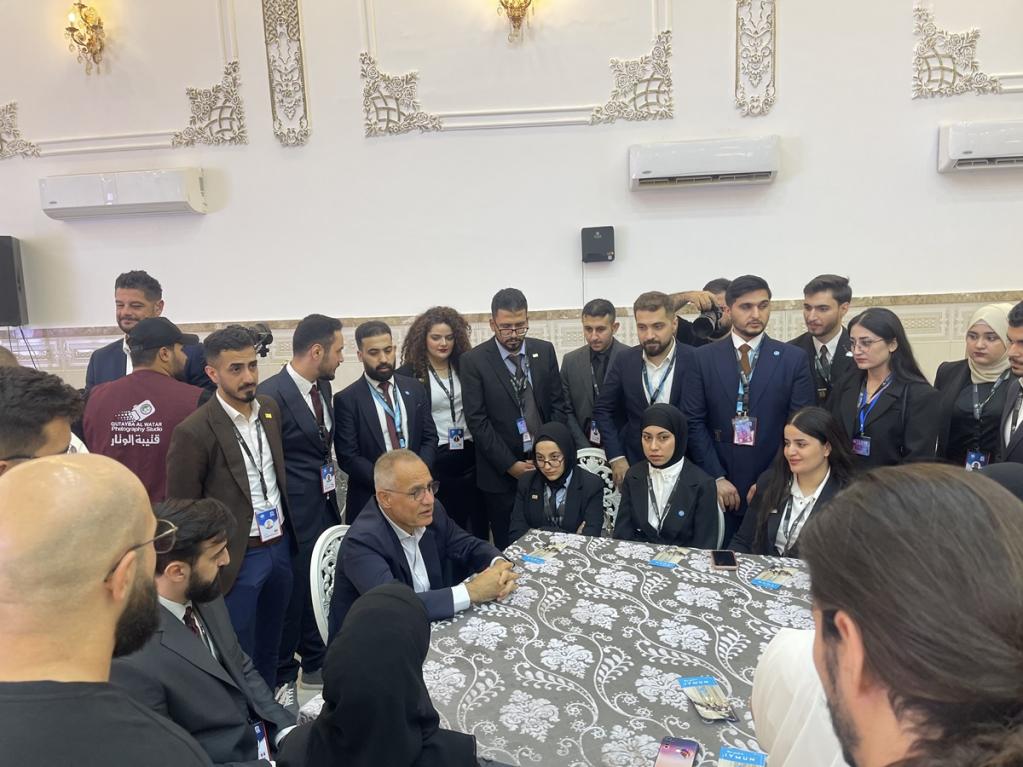
Story
23 July 2024
UNAMI Human Rights Office workshop on “The Role of Civil Society on Climate Change and Human Rights in the Kurdistan Region of Iraq”
The Human Rights Office of the United Nations Assistance Mission for Iraq (UNAMI) organized one-day workshop on “The Role of Civil Society Organizations on Climate Change and Human Rights in the Kurdistan Region of Iraq”. The event was attended by 24 participants (10 female and 14 male) from Duhok, Erbil, Halabja and Sulaymaniyah. The workshop aimed at establishing a network among civil society organizations to advocate for the development of human rights-based climate change policies and legislation for the Kurdistan Region of Iraq. The participants proposed concrete measures and an action plan to mitigate the impact of climate change on human rights.
1 of 5
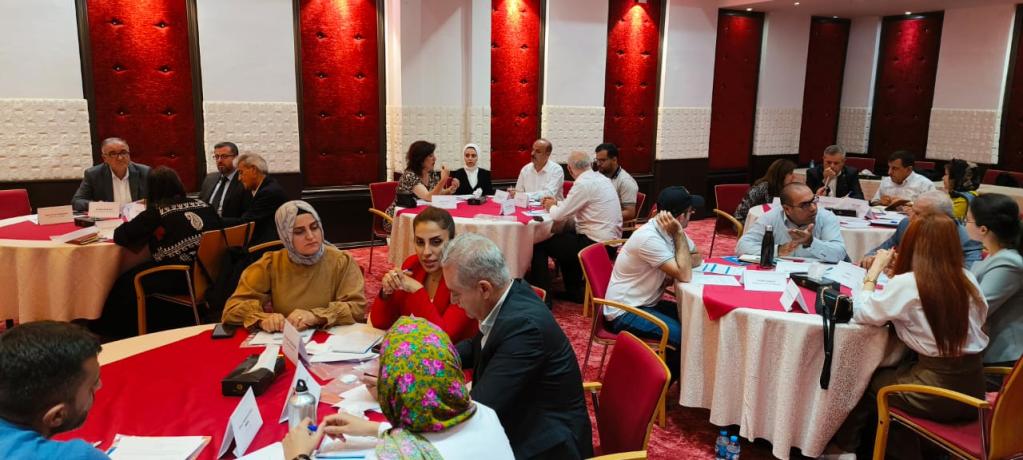
Story
22 July 2024
DSRSG/RC/HC Ghulam Isaczai Opening Remarks - Launch of the "Water is Life" Campaign
H.E. Aoun Diab Abdullah, Minister of Water Resources,Distinguished guests, colleagues, and ladies and gentlemen,Al-Salamu Alikum and Good morning.It is a great pleasure to welcome you all to the launch of the joint UN and Ministry of Water Resources "Water is Life" campaign together with H.E., the Minister.Water is not just a resource; it is the very essence of life itself.Every water drop counts, and it is our collective responsibility to ensure that this vital resource is preserved and conserved for future generations.Today, water crisis is one of the most pressing and urgent challenges facing Iraq. This issue transcends environmental concerns, touching every facet of life, from national security to public health, from agricultural productivity to social stability.The crisis is immediate and severe, with far-reaching consequences if left unaddressed.Allow me to share some alarming facts based on scientific data. By 2050, we could see temperature increases of 2-4°C and reductions in precipitation by up to 20 per cent in key agricultural regions by 2040.Additionally, river flows are expected to decline by 30-40 per cent, and experts predict that by 2035, Iraq will only be able to meet 15 per cent of its water needs.This looming crisis threatens to exacerbate rural poverty and displace communities, particularly in the southern regions.Therefore, the "Water is Life" campaign is not just an initiative; it is a call to action.Over the next year, we will work tirelessly to raise awareness about the urgency of the water crisis and promote individual and collective responsibility.This campaign will be rolled out in four distinct phases, each designed to build a comprehensive understanding and foster active engagement.Throughout this campaign, we aim to instill a sense of hope and optimism. While we must communicate the gravity of the situation, we also want to inspire collective action and resilience.We will leverage a diverse range of content to reach a wide audience, from simple messages to expert interviews, infographics, and videos.Collaboration is key. We will coordinate with line ministries, local governments, civil society groups, academia, and influencers to ensure a unified and effective approach.Let us remember that every water drop counts, and so does every action we take.I extend my heartfelt gratitude to H.E. Minister Theyab and his teams, and to all our partners for their commitment.Together, we can make a difference. Let us work together to make "Water is Life" campaign a rallying cry for positive change in Iraq.Thank you
1 of 5

Story
21 July 2024
International Labour Organization (ILO) kickstarts Development of a Comprehensive National Policy for Occupational Safety and Health and Social Security for the Agriculture Sector in the Republic of Iraq
In cooperation with the Ministry of Labour and Social Affairs and with broad national participation of various ministries, workers’ and employers’ organizations, and cooperative agricultural associations in the Republic of Iraq. The International Labour Organization ILO held a workshop to support Iraq’s efforts in developing a comprehensive national policy for occupational safety and health, and social security.Erbil-Iraq: 17 July 2024 (News from ILO)ILO, in collaboration with the Ministry of Labour and Social Affairs, held a national sectoral workshop from 15-17 July 2024 to discuss ways to support Iraq's efforts in developing a comprehensive national policy for occupational safety and health and social security for the agricultural sector, with the participation of a wide spectrum of Iraqi ministries at both the federal level and the Kurdistan Region of Iraq, as well as worker organizations, employer organizations, and the Union of Agricultural Associations.In the opening session of the workshop, Mr. Khalid Amjad, Deputy Minister of Labour and Social Affairs, emphasized that the workshop laid the foundation for enhancing occupational safety and health and social security in the agriculture sector by proposing the establishment of a national legal framework, occupational health and safety systems and a robust inspection system. In addition, he highlighted the importance of social security benefits for worker in the agriculture sector – an important step towards formalisation of the agricultural sector.Participants of the workshop reviewed international labour standards related to social security, particularly the Social Security (Minimum Standards) ILO Convention No. 102 of 1952, which Iraq ratified in 2022 and which came into force in March 2023. They also reviewed the Safety and Health in Agriculture ILO Convention No. 184 of 2001, which Iraq ratified as the first Arab country in 2020 and which came into force in May 2022. Dr. Maha Kattaa, the ILO Country Coordinator in Iraq, highlighted the importance of having a national policy for occupational safety and health and social security for the agriculture sector, as this sector is classified among the three sectors with the highest occupational hazards and work-related injuries globally and among the least covered by social security. Dr. Kattaa stressed that enhancing protections against occupational risks and extending social security benefits to workers in the agricultural sector is one of the most important measures to address decent work gaps within this sector. The workshop included an initial analysis of the national legislative frameworks for occupational safety and health as outlined in labour legislation and examined the extent of coverage of social security in Iraq for agricultural workers, especially following the issuance of Law No. 18 of 2023 on Retirement and Social Security, which expanded the benefits covered by the law's provisions, particularly the self-employed and workers in the informal economy. The workshop revealed the need for developing this policy, updating existing legislation, and enhancing sectoral coordination between ministries, agencies, worker organizations, employer organizations, and farmers' cooperative associations in Iraq to draft and adopt the policy and implement it through feasible national programmes. These programmes will aim to boost the implementation of occupational safety and health standards in the sector, monitor and analyze work-related injuries and occupational diseases, ensure that workers are covered by social security benefits, and establish a referral system for injured and sick workers to social security, including them in the health guarantees provided by the law. This, in turn, will increase coverage rates of agricultural workers under the social security system in Iraq. This workshop is part of a broader ILO initiative to support national efforts to improve social protection for workers in Iraq within the context of a joint social protection program in Iraq including ILO, UNICEF, and the World Food Programme: " Leveraging Effective Response and Accelerating Reform," funded by the European Union.
1 of 5

Story
14 July 2024
Iraq's Water Crisis: A Catalyst for Change
Iraq's water crisis, a microcosm of the interconnected challenges of climate change, biodiversity loss, and pollution, is being transformed into a powerful catalyst for accelerating progress towards multiple SDGs [Sustainable Development Goals].The UN in Iraq, collaborating with local and international partners, is strategically championing sustainable transboundary water management by fostering regional cooperation and ensuring equitable water use, crucial for both stability and prosperity, through integrated initiatives by different UN agencies – with an impact on all the Goals.For example, UN agencies like UNESCO and FAO are partnering together in this work to enhance water governance improving water use efficiency by merging traditional wisdom with modern technology. This empowers farmers to optimize water consumption, improving not only water management but also boosting agricultural resilience and contributing to a more sustainable food system. Interventions like the United Nations Office for Project Services (UNOPS) initiative in Sinjar to improve water access and UNICEF's desalination systems in Ninewa, provide not only safe and accessible water to vulnerable communities; these efforts directly improve livelihoods, affecting health and prosperity. The UNCT’s proactive engagement extends to shaping the future of water management in Iraq. The National Water Policy Dialogue serves as a platform for fostering inclusive discussions, learning from international best practices, and crafting comprehensive water policy frameworks. This ensures that water management remains a top priority in the upcoming UN Sustainable Development Cooperation Framework (2025-2029), a roadmap agreed with the Government for sustainable development. Behavior changes and awareness raising are key measures to address Iraq’s water crisis, which is also a water pollution crisis, subsequently the Resident Coordinator jointly with the Minister of Water Resources will launch a joint UN-Government Water Campaign in July 2024 to raise awareness among Iraqi citizens about the severe water crisis affecting the nation and to highlight the collective and individual responsibilities in addressing it.By tackling the water crisis, Iraq is not only accelerating progress towards clean water and sanitation, but also creating a ripple effect across multiple SDGs, including strengthening climate action, protecting biodiversity, and fostering a more resilient and equitable future for all.Learn more : https://un-dco.org/stories/accelerating-sdgs-transformation-action
1 of 5
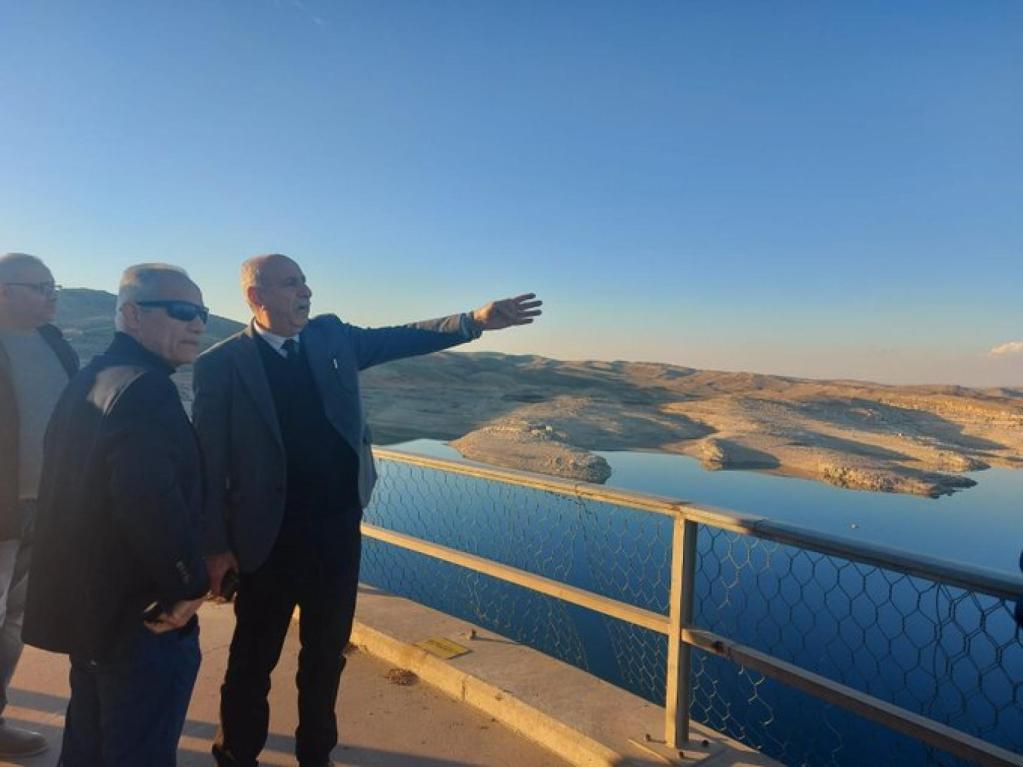
Press Release
25 July 2024
Iraqi Parliament honored FAO and Pioneering Rural Women
Key attendees included Dr. Safwan Bashir al-Jarjari, Parliament General Secretary; MP Donia Al-Shamri, Head of the Women, Family, and Childhood Committee; MP Faleh al-Khazali, Head of the Agriculture, Water, and Marshes Committee; Dr. Mithaq Al Khafaji, MoA's Technical Deputy; Dr. Salah El Hajj Hassan, FAO Representative; various parliamentarians; project partners; and representatives from NGOs."Today, we honor distinguished Iraqi women engaged in small-scale agricultural and livestock production projects. We acknowledge the efforts of FAO, MoA, and the EU in supporting rural women and look forward to further cooperation to empower more women across Iraqi governorates," said MP Donia Al-Shamri, Head of the Women, Family, and Childhood Committee.FAO Iraq representative, Dr. Salah El Hajj Hassan, provided an overview of the organization’s interventions in supporting the dairy value chain and empowering rural women. He highlighted the profound impact on their livelihoods and communities and shared updates on other ongoing projects. He stated : “We thank the Presidency of the Parliament and the Women, Family, and Childhood Committee for this acknowledgment of FAO’s efforts and those of these remarkable women. We also, greatly value our partnership with national and international partners. The dedication and efforts of these women are truly commendable, and the necessity to scale up these projects to reach more women across more governorates cannot be overstated. Together, we can build a brighter future for all, and we look forward to more cooperation with the Iraqi parliament and government to further advance the agricultural sector and empower women in Iraq.”Project partners shared their success stories, underscoring the invaluable support received from FAO, the EU, and the MoA. Their testimonies highlighted the project's positive impact on their lives and communities. The participated women also called for granting Iraqi women in this field opportunities equal to those in other professions.The celebration also showcased a variety of high-quality dairy products crafted by women groups benefited from the support of FAO through the EU funded project in collaboration with MoA. Shields of Excellence and Certificates of Appreciation were awarded to the EU delegation in Iraq, MoA, FAO team, and the rural women by the members of the Women, Family and Childhood committee. During a bilateral meeting, that followed the ceremony, the Parliament’s General Secretary, Dr. Safwan Bashir al-Jarjari, appreciated the organization’s efforts in supporting the agricultural sector in Iraq and empowering rural women. He presented recognition certificates to the FAO representative and team, as well as the EU Delegation in Iraq, reaffirming Parliament's commitment to supporting FAO’s projects in Iraq.FAO remains steadfast in its commitment to advancing the agricultural sector and empowering rural women across Iraq, in collaboration with national and international partners.
This initiative aligns with Sustainable Development Goals (SDGs), particularly Goal 1 (No Poverty), Goal 2 (Zero Hunger), and Goal 5 (Gender Equality), by enhancing livelihoods, ensuring food security, and promoting gender equality.
This initiative aligns with Sustainable Development Goals (SDGs), particularly Goal 1 (No Poverty), Goal 2 (Zero Hunger), and Goal 5 (Gender Equality), by enhancing livelihoods, ensuring food security, and promoting gender equality.
1 of 5
Press Release
24 July 2024
The Government of Denmark Provides Additional Contribution to UNMAS in Support of the Mine Action Sector in Iraq
Iraq is one of the most explosive ordnance contaminated countries in the world. According to data from the national mine action authorities, more than 2.700 square kilometers are contaminated with landmines, cluster munitions, improvised explosive devices, and other types of explosive remnants of war. EO poses a concern to public safety and restricts access to livelihood opportunities and infrastructure.The generous contribution from the Government of Denmark will enable UNMAS Iraq to continue the support to national mine action operators and the GoI towards building a sustainable and well-coordinated mine action sector in Iraq. UNMAS Iraq works to support the nationalization of mine action response in implementing and managing survey and clearance operations, as well as explosive ordnance risk education activities in the most devastated and vulnerable locations in Iraq. Furthermore, through this contribution, UNMAS Iraq will continue to support GoI national authorities in strengthening the federal response to EO contamination in the areas liberated from ISIL through technical and advisory support to effectively lead and coordinate the mine action sector.“UNMAS Iraq is grateful for the generous contribution from the Government of Denmark. This additional funding will allow UNMAS to continue to support the Government of Iraq mine action authorities and national partners to operate autonomously and independently, as part of a strong and well coordinated mine action sector. In addition, it will allow UNMAS to support safe and dignified returns for IDPs.” said Pehr Lodhammar, UNMAS Chief Mine Action Programme.
1 of 5
Press Release
23 July 2024
UNODC participates in the 2nd Baghdad International Conference on Countering Narcotics and Presents the Report “Drug Trafficking Dynamics across Iraq and the Middle East (2019-2023)”
Today marked an important moment in Iraq’s road towards addressing drug trafficking through international cooperation with the holding of the 2nd Baghdad International Conference on Countering Narcotics, in the presence of UNODC, and the presentation of the report “Drug Trafficking Dynamics across Iraq and the Middle East (2019-2023): Trends and Responses.” The Conference was opened in the presence of H.E. Mohammed Shia' Al Sudani, Prime Minister of Iraq, H.E Abdul Amir al-Shammari, Minister of Interior, H.E. Mohammad Bin Ali Kuman, Secretary General of the Arab Interior Ministers Council (AIMC), Ms. Cristina Albertin, the United Nations Office on Drugs and Crime (UNODC) Regional Representative for the Middle East and North Africa, and Mr. Ali El Bereir, Senior Programme Coordinator and Head of the UNODC Office in Iraq. The event was also attended by representatives of Ministers of Interior from the region and neighboring countries affected by drug trafficking. The Baghdad International Conference on Countering Narcotics aims to bring together relevant authorities and experts from countries neighboring Iraq as well as regional and key international players to find concrete solutions and recommendations to challenges faced by authorities in countering drug trafficking in the region. H.E. Mohammed Shia' Al Sudani, Prime Minister of Iraq affirmed in the opening of the Conference that “Combating drugs is a responsibility that the state must bear with all its agencies and entities, as well as our societies... Drugs and psychotropic substances are a primary factor in the instability of the region. The threat of drugs not only harms our youth but endangers our entire future. By unifying efforts and enhancing joint coordination, we can achieve the desired goal of drug-free societies.” The “Drug Trafficking Dynamics across Iraq and the Middle East (2019-2023): Trends and Responses” report was presented today at the Conference to provide an analysis of the main drug trafficking trends in Iraq and the Near and Middle East. In addition to posing a diagnostic of the concerning drug situation, the report provides a roadmap to assist national, regional, and international authorities in accelerating collaboration and better coordination to counter-narcotics. The report reveals that countries in the region have experienced an escalation in both the scale and sophistication of drug trafficking over the past 10 years. This poses important destabilizing risks and is a regional and global concern. Of particular concern are the rising production, trafficking, and consumption of amphetamine-type stimulants (ATS), especially tablets of "Captagon," and methamphetamine.Ms. Cristina Albertin, UNODC Regional Representative for the Middle East and North Africa stated that “the Government of Iraq and its partners have stressed the need for collective responses to tackle the security, social, and economic ramifications of drug trafficking across the Near and Middle East. As seen in different regional contexts, the persistence – and potential reactivation – of armed groups across the region poses a significant threat, not least given their potential involvement in drug production and trafficking. Data and analysis like those provided by this report are necessary for evidence and data-driven national, regional, and global responses to this problem.” Over the past two years, the Iraqi Government has taken bold steps in combatting drugs, by reorganizing the relevant departments of the Ministry of Interior, a better-coordinated approach internally and with other Member States, and expansion of the treatment facilities. The Conference and the Report are additional contributions towards this holistic approach and will together provide a base for a series of recommendations to be adopted by participating countries and implemented to address the threats of drug trafficking. *****For more information: Full Report - Report summary ( Arabic – English)
1 of 5
Press Release
22 July 2024
UN Iraq and Ministry of Water Resources Launch "Water is Life" Campaign
The launch event was held at the Ministry of Water Resources and included a comprehensive overview of the campaign, followed by an engaging discussion and a press conference.Minister of Water Resources, H.E. Aoun Diab Abdullah, stated, "Our Ministry is committed to updating our water management strategies and incorporating modern technologies in irrigation projects. These efforts are essential to prevent waste and depletion of our water resources and ensure that every drop of water is used efficiently. The partnership with UN and international organizations has been crucial in these advancements. We are grateful for their support in raising awareness and promoting sustainable practices."UN Resident and Humanitarian Coordinator, Ghulam Mohammed Isaczai, emphasized the urgency of the situation and the collective actions needed to address it. He said, "Water is essential to life, yet we are currently facing a significant crisis. In recent years, the rivers have run lower, and the fields have dried up more than ever before. Through collective efforts and cooperation, we can tackle this challenge. Crucial steps such as upgrading water systems, protecting the rivers from pollution, and investing in innovative water management practices are paramount. Let’s work together to protect water for the future of Iraq. Every drop counts and so does every action."The "Water is Life" campaign is structured through four phases over the next year. The initial phase will focus on raising awareness about the water crisis and the effects of climate change. The following phase will introduce the key players involved in managing Iraq's water resources, fostering a sense of accountability and collaboration. The third phase will showcase ongoing projects and efforts by the Iraqi government and UN agencies, highlighting successes and ongoing initiatives. The final phase will look to the future, outlining plans and strategies to continue addressing the water crisis and highlighting Iraq’s participation in international forums and efforts to secure support and funding for water projects.The "Water is Life" campaign represents a unified effort by the UN agencies and the Iraqi government to address one of the most pressing issues facing the country. Through this campaign, significant progress can be made in water conservation and management, ensuring a sustainable and better future for all Iraqis.Hashtag: #WaterisLife
1 of 5
Press Release
16 July 2024
Switzerland bolsters support for displaced people in Iraq with USD 1 Million donation
In particular, Switzerland’s contribution will enable UNHCR to maintain its core protection activities – including registration and legal assistance – while also strengthening national systems that support refugees on par with Iraqi nationals. It will also support UNHCR’s efforts to address the remaining needs for civil documentation among vulnerable displaced Iraqis. Since 2019, together with the Iraqi government, UNHCR has helped over 200,000 Iraqis obtain vital documents enabling them to access their most basic rights.“Switzerland is dedicated to safeguarding human rights and supporting conflict-affected communities in Iraq. Through our partnership with UNHCR, we strive to empower refugees and achieve sustainable solutions for displaced populations,” said H.E. Emilija Georgieva, the Swiss Ambassador to Iraq based in Jordan, Amman.The majority of refugees in Iraq are Syrians residing in the Kurdistan Region of Iraq (KR-I). Most already have access to quality education and public health services, and also have opportunities to develop their livelihoods, mainly in the informal sector. Iraqi authorities have demonstrated a strong commitment to assume more responsibility towards Syrian and other refugees, however, continued donor support is crucial to ensure national structures are strengthened and able to service refugees and Internally Displaced People (IDPs).“The partnership with Switzerland has been instrumental in helping UNHCR support long-term solutions for displaced populations in Iraq by further capacitating relevant authorities to deliver national IDs,” said Pauline Fresneau, UNHCR’s Acting Representative in Iraq. “UNHCR deeply appreciates Switzerland's continued commitment to international protection, which remains a priority in Iraq as an integral part of solutions for displacement.”Switzerland remains one of UNHCR’s key governmental partners, both globally and in Iraq. Flexible and predictable support from Switzerland has ensured that vital resources are available for the most pressing needs, as well as to help build the capacity of authorities and strengthen public services to facilitate refugee inclusion.Iraq generously hosts about 300,000 refugees. While the majority reside within towns, villages and cities alongside Iraqi communities, about 32 percent reside in nine refugee camps in the KR-I. Refugees have limited prospects to return to their country given the ongoing insecurity and human rights and humanitarian law violations and abuse, and thus require continued support to become self-reliant and active members of their communities. There are also have over 1 million Iraqis remain internally displaced with some 150,000 living in 21 IDP camps in the KR-I and for whom we will continue to work with the authorities to find dignified and sustainable solutions, including safe and voluntary return to areas of origin, relocation to other areas within the country, and local inclusion.
1 of 5
Latest Resources
1 / 11
Resources
23 July 2024
1 / 11

